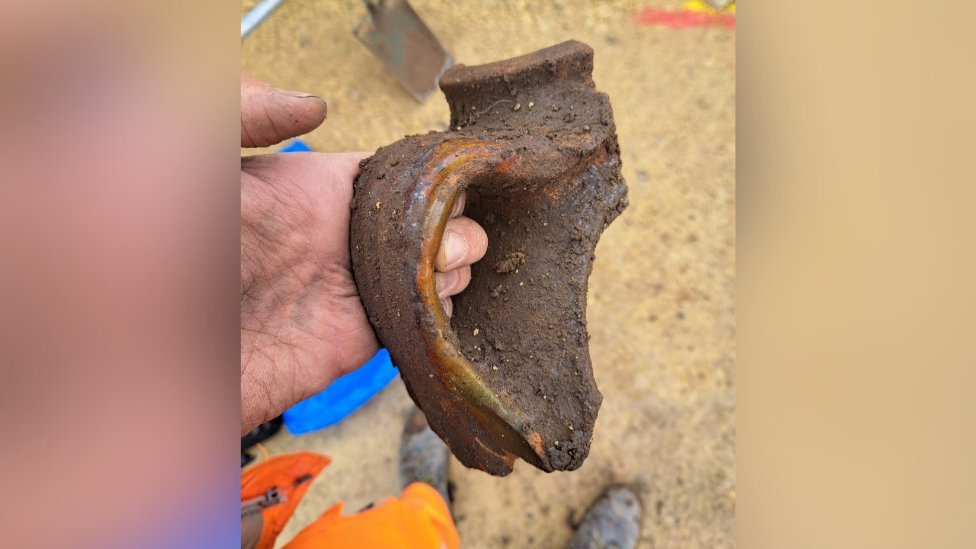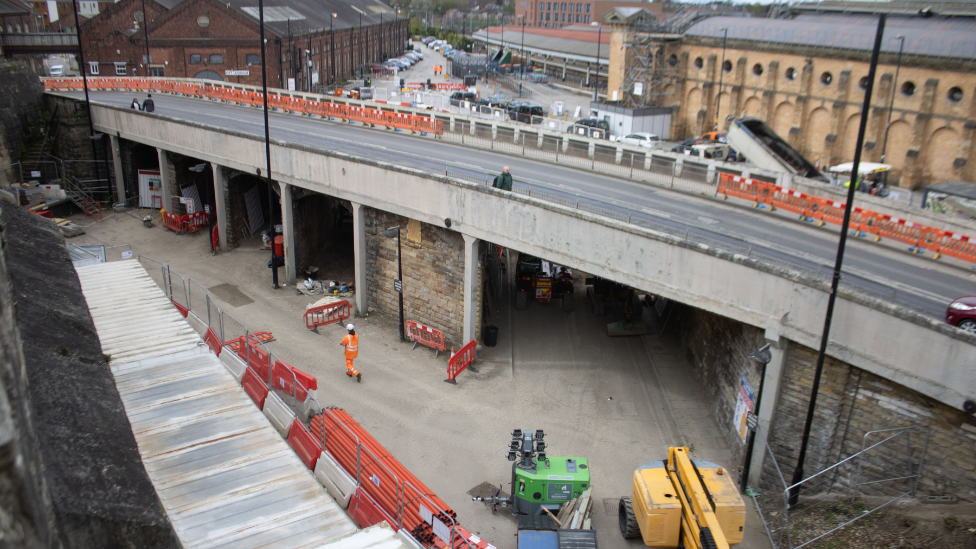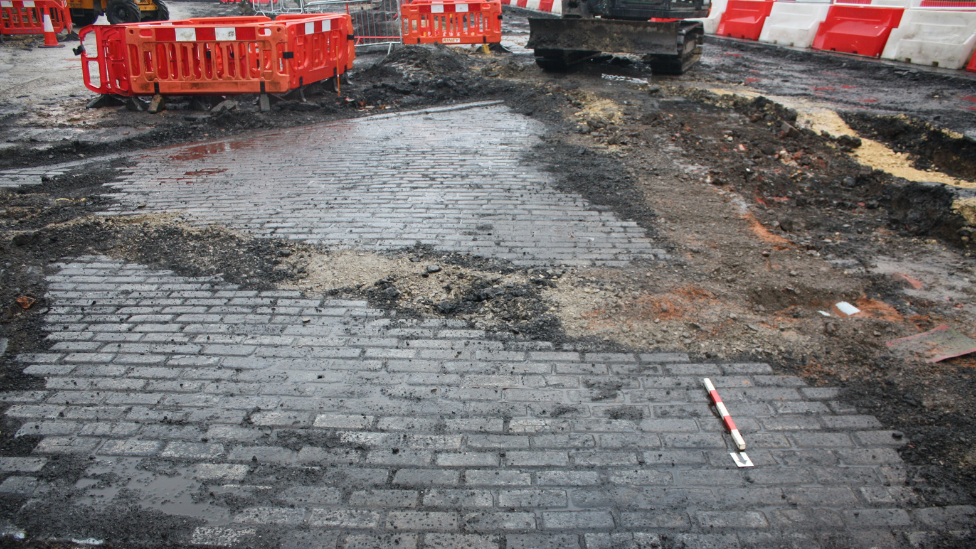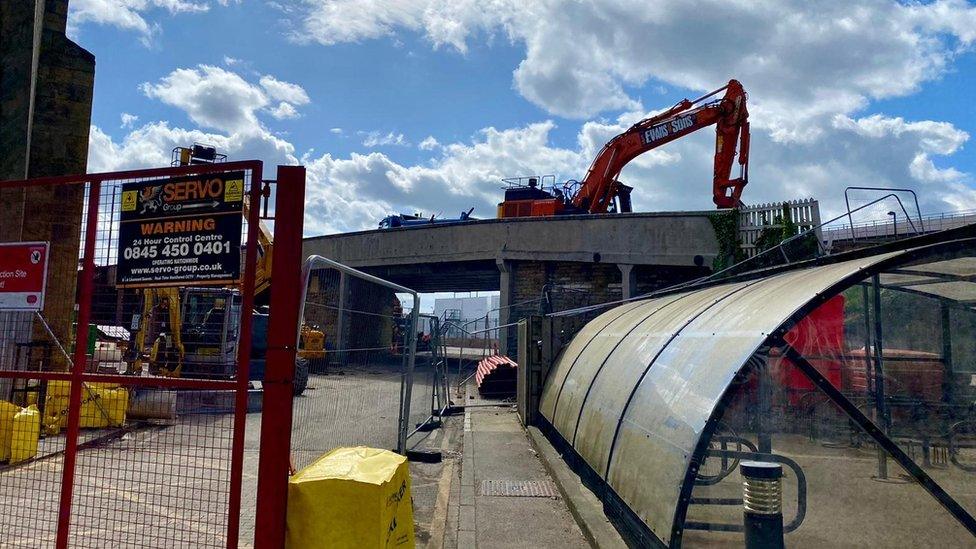York medieval artefacts unearthed during city centre bridge demolition
- Published

Archaeologists found a 14th Century jug handle during the work in York
Several medieval artefacts have been unearthed during the demolition of a major bridge in York city centre.
Work is currently being carried out on the Queen Street bridge as part of a scheme to improve the entrance of the city's nearby railway station.
Staff from York Archaeology said they had used the opportunity to uncover part of York hidden for 150 years.
In doing so, its archaeologists had unearthed medieval pottery, animal bones and Victorian brickwork.
In preparation for the bridge being demolished, a new temporary road had to be built over York Railway Station's long stay car park and that had yielded some "fascinating archaeology", they said.

Archaeologists have used the opportunity to investigate the site while work takes place to demolish Queen Street Bridge
Mary-Anne Slater, project manager for York Archaeology, said: "This is an area that has been substantially disturbed by building works during the Victorian era.
"Beneath the flags, we have found drainage ditches from the 19th Century, and below them, evidence of large medieval ditches containing broken green glaze pottery and animal bones dating back to the 13th and 14th centuries.
"This area outside the city walls was agricultural land during the medieval period, and the ditches may have been used for dumping rubbish from the medieval city."
Some disturbed bone had also been recovered from the site, which was a known Roman cemetery, but had "probably lifted from lower levels by ploughing", Ms Slater said.
Meanwhile, teams had unearthed Victorian "scoria" bricks, which were made from blast furnace slag from the industrial North and which would have lined the approaches to the station.

Victorian "scoria" bricks would have lined the approaches to the station, when it was built in 1877
Pete Kilbane, deputy leader of City of York Council and executive member for transport and the economy, said: "This is a hugely complex piece of work and due to York's 2,000 years of continuous habitation, unearthing history is a factor that we must plan for.
"We liaise closely with York Archaeology to protect any discoveries while managing disruption and allowing the works to progress."
Archaeological exploration of the site is expected to continue below the Queen Street bridge site once the bridge itself has been removed and before the new permanent road is installed.

Follow BBC Yorkshire on Facebook, external, X (formerly Twitter), external and Instagram, external. Send your story ideas to yorkslincs.news@bbc.co.uk, external
Related topics
- Published18 April 2024

- Published21 April 2024
